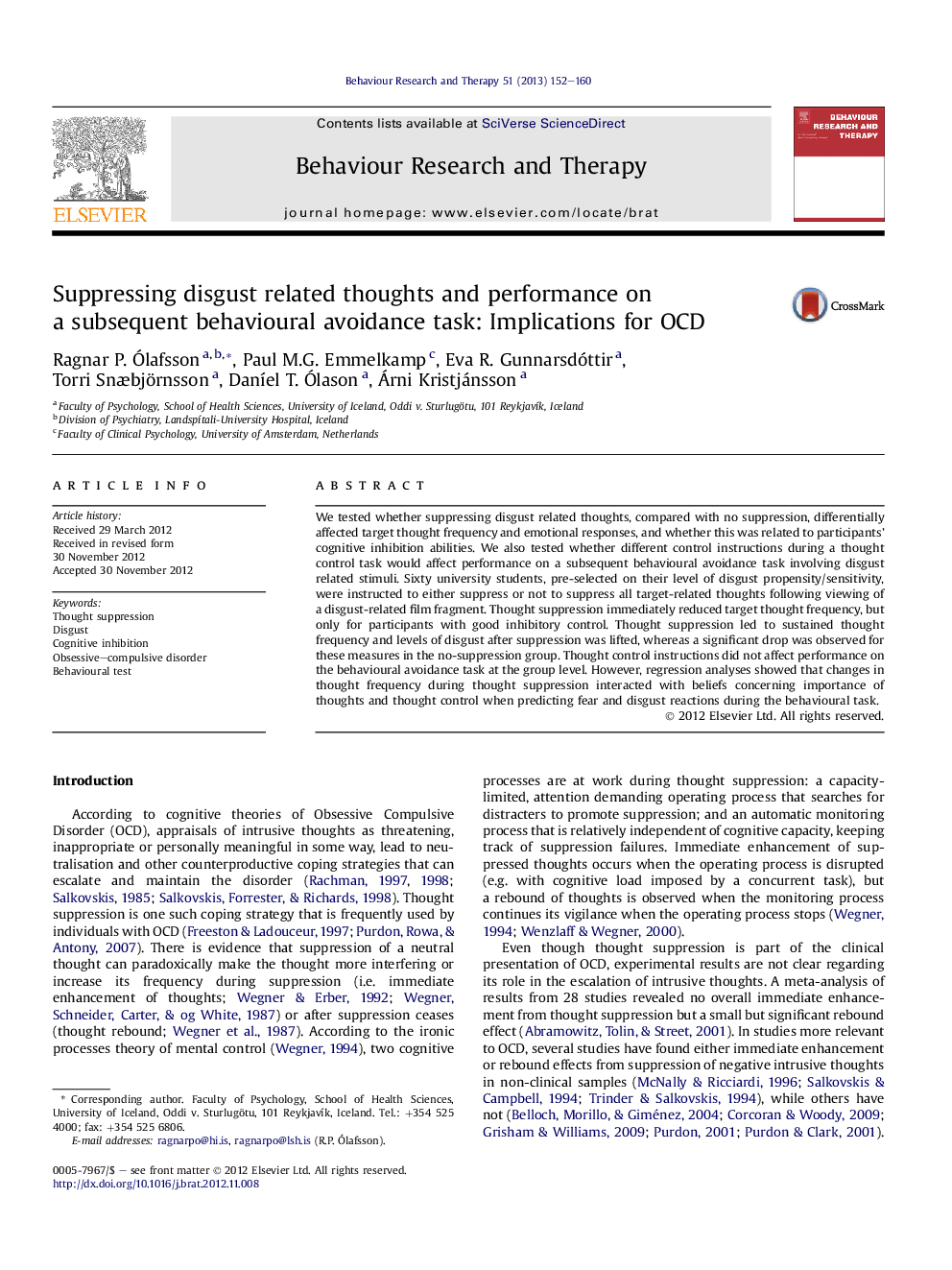| Article ID | Journal | Published Year | Pages | File Type |
|---|---|---|---|---|
| 901900 | Behaviour Research and Therapy | 2013 | 9 Pages |
We tested whether suppressing disgust related thoughts, compared with no suppression, differentially affected target thought frequency and emotional responses, and whether this was related to participants' cognitive inhibition abilities. We also tested whether different control instructions during a thought control task would affect performance on a subsequent behavioural avoidance task involving disgust related stimuli. Sixty university students, pre-selected on their level of disgust propensity/sensitivity, were instructed to either suppress or not to suppress all target-related thoughts following viewing of a disgust-related film fragment. Thought suppression immediately reduced target thought frequency, but only for participants with good inhibitory control. Thought suppression led to sustained thought frequency and levels of disgust after suppression was lifted, whereas a significant drop was observed for these measures in the no-suppression group. Thought control instructions did not affect performance on the behavioural avoidance task at the group level. However, regression analyses showed that changes in thought frequency during thought suppression interacted with beliefs concerning importance of thoughts and thought control when predicting fear and disgust reactions during the behavioural task.
► Effect of trait disgust and thought control on thought frequency was investigated. ► Suppression immediately reduced frequency when inhibitory control was good. ► Sustained thought frequency and levels of disgust after suppression was lifted. ► No-suppression led to significant drop for these measures. ► Thought frequency by beliefs interaction when predicting fear/disgust during BAT.
